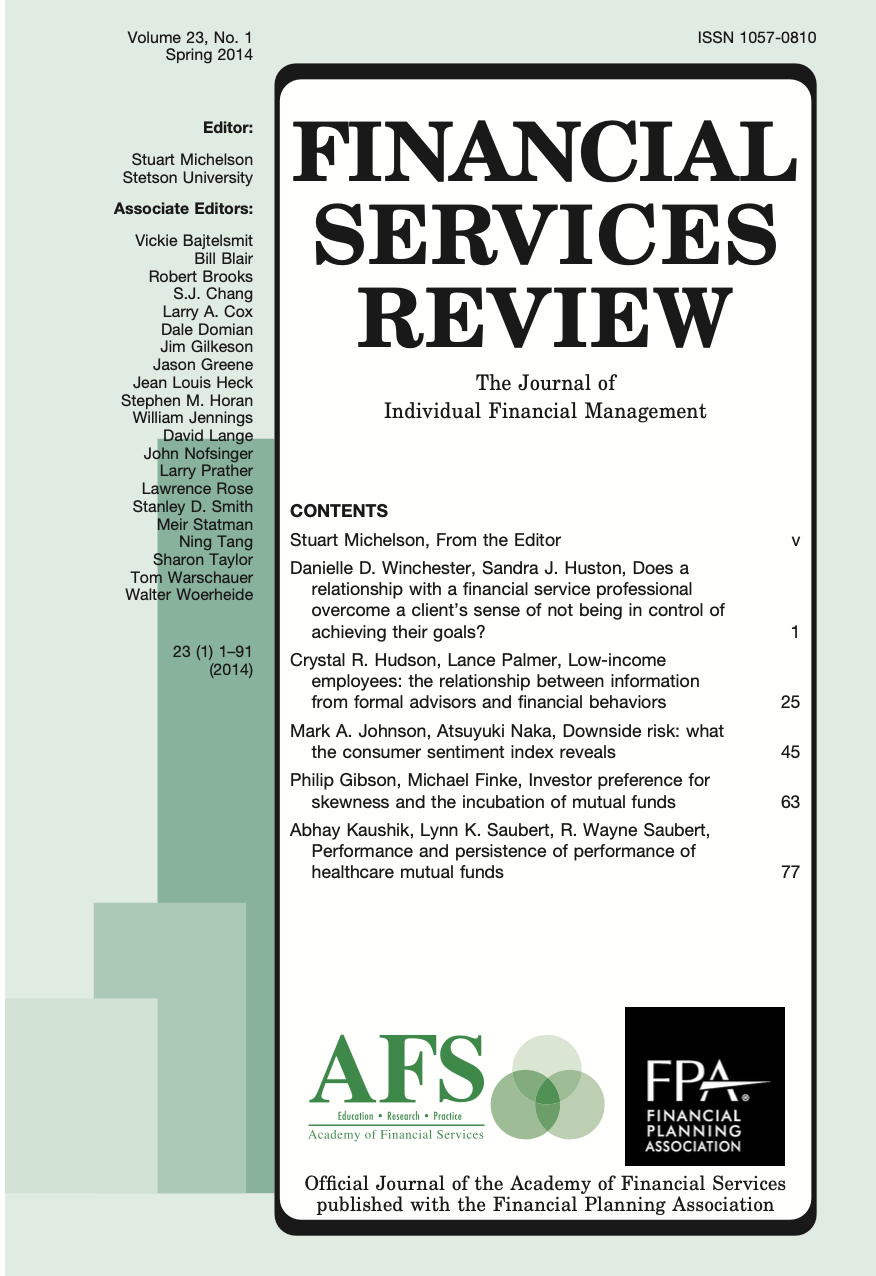Low-income employees
the relationship between information from formal advisors and financial behaviors
DOI:
https://doi.org/10.61190/fsr.v23i1.3184Keywords:
Financial information, Low-income employees, Financial behaviorsAbstract
This study investigates the financial literacy of low-income employees, by examining their financial behaviors. Thus, researchers examine the effect that information from formal advisors has on the financial behaviors of low-income employees. In this study, formal advisors include financial plan- ners, bankers, brokers, employers, accountants, insurance agents, and lawyers. Using data from the 2010 Survey of Consumer Finances, researchers find a significant and positive relationship between the use of information from formal advisors and low-income employees’ positive financial behaviors. In other words, low-income employees who use information from formal advisors exhibit better financial behaviors than those who do not.
Downloads
Published
How to Cite
Issue
Section
License
Copyright (c) 2014 Academy of Financial Services

This work is licensed under a Creative Commons Attribution-NonCommercial 4.0 International License.
Author(s) retain copyright and grant the Journal right of first publication with the work simultaneously licensed under a Creative Commons Attribution-NonCommercial 4.0 International License that allows to share the work with an acknowledgment of the work's authorship and initial publication in this Journal.
This license allows the author to remix, tweak, and build upon the original work non-commercially. The new work(s) must be non-commercial and acknowledge the original work.


